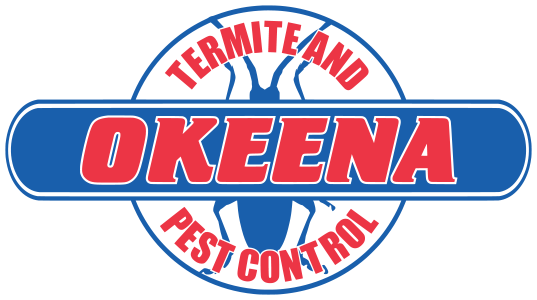Huntsman Spiders in Tennessee: Identification and Prevention

Huntsman spiders are one of the largest spider species homeowners may encounter in Tennessee. Their size, speed, and unusual leg shape often cause concern, especially when one is spotted indoors. While huntsman spiders can look intimidating, they are generally not aggressive and play a role in controlling other insect populations.
This guide explains how to identify huntsman spiders, where they’re commonly found in Tennessee, whether they pose any danger, and what homeowners can do to prevent unwanted encounters.
What Are Huntsman Spiders?
Huntsman spiders belong to the Sparassidae family and are often called giant crab spiders due to their wide, flattened bodies and sideways-oriented legs. Unlike web-building spiders, huntsman spiders are active hunters that chase or ambush their prey rather than trapping insects in webs.
They are known for their speed and agility, which is why sightings can feel startling — especially indoors. Despite their appearance, huntsman spiders tend to avoid human interaction whenever possible.
How to Identify Huntsman Spiders
Huntsman spiders have several physical traits that make them stand out from other spiders commonly found in Tennessee.
Size and Body Shape
Huntsman spiders are large compared to most household spiders. While body size varies by species, their leg span can reach several inches, making them appear much bigger than they actually are. Their bodies are flat, allowing them to squeeze into narrow cracks and crevices.
Leg Position and Movement
One of the most recognizable features of huntsman spiders is their laterally splayed legs, which extend outward rather than straight down. This gives them a crab-like stance and allows them to move quickly sideways as well as forward.
Coloration
Most huntsman spiders are brown, gray, or tan, often with subtle markings that help them blend into bark, rocks, or mulch. Their coloring provides effective camouflage in natural environments and around structures.
Behavior
Huntsman spiders do not build webs to catch prey. Instead, they roam and hunt, often becoming active at night. Indoors, they may be seen running across walls, ceilings, or floors as they search for insects.
Are Huntsman Spiders Dangerous?
Huntsman spiders are not considered dangerous to humans. They do possess venom, but it is designed to subdue insects and poses little risk to people.
Bites are uncommon and usually occur only if a spider is trapped or handled. When bites do happen, symptoms are typically mild and may include localized redness, swelling, or minor discomfort. Serious reactions are rare.
In Tennessee, the spiders of real medical concern are brown recluses and black widows. Huntsman spiders are often mistaken for these species due to their size, but they are not nearly as risky.
Where Huntsman Spiders Are Found in Tennessee
Huntsman spiders prefer warm environments and sheltered spaces, making parts of Tennessee suitable habitat.
Outdoors
They are commonly found:
- Under tree bark, rocks, or logs
- Around woodpiles and landscaping debris
- In sheds, garages, and crawl spaces
Indoors
Huntsman spiders occasionally wander inside homes, especially:
- During cooler weather
- When seeking prey
- When exterior access points allow entry
Finding a huntsman spider indoors does not mean there is an infestation. These spiders do not nest inside homes or reproduce indoors like insects such as ants or cockroaches.
Huntsman Spiders vs. Other Common Tennessee Spiders
Because of their size, huntsman spiders are frequently confused with other species.
Huntsman vs. Wolf Spiders
Both are fast hunters, but wolf spiders are bulkier and have different eye patterns. Huntsman spiders have flatter bodies and wider leg positioning.
Huntsman vs. Brown Recluse
Brown recluses are smaller and have a distinctive violin-shaped marking on their backs. Huntsman spiders lack this marking and have much longer, outward-angled legs.
Correct identification matters, especially when homeowners are concerned about safety.
Why Huntsman Spiders Enter Homes
Huntsman spiders usually enter homes for one of three reasons:
- Searching for insects
- Seeking shelter from temperature changes
- Access through gaps, cracks, or poorly sealed openings
They are not attracted to homes themselves — they follow food sources and shelter opportunities.
How to Prevent Huntsman Spiders Around Your Home
Even though huntsman spiders are not dangerous, most homeowners prefer to keep them outside. Prevention focuses on limiting access and reducing conditions that attract insects.
Reduce Outdoor Hiding Areas
Clear away woodpiles, leaf litter, and debris near your foundation. Keep landscaping trimmed and avoid storing materials directly against exterior walls.
Seal Entry Points
Inspect doors, windows, vents, and foundation cracks. Proper sealing and intact screens reduce spider and insect entry.
Manage Outdoor Lighting
Exterior lights attract insects, which in turn attract spiders. Using yellow-tinted bulbs or reducing unnecessary lighting can help limit activity near entry points.
Control Insect Populations
Since huntsman spiders hunt insects, reducing overall pest activity around your home makes the area less appealing to them.
Call the Experts at Okeena
Remember, prevention is key, so take the necessary steps to remove food sources, eliminate clutter, and keep your home clean and tidy. However, if you find that you still need assistance with a spider infestation, do not hesitate to contact Okeena Termite and Pest Control. Our experienced professionals can provide you with the expertise and solutions needed to address your pest issue effectively. Don't wait, take control of your home and reach out for help today!

